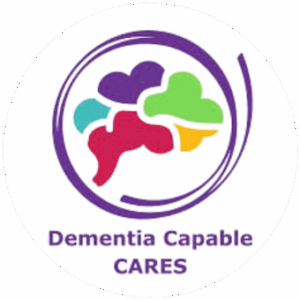It starts as, “Just one of those days.” But then, those days begin to come upon you more frequently, which you struggle through until the days become weeks. It’s now gotten to the point where you’re physically and mentally exhausted. There’s a name for what you’re experiencing: caregiver burnout.
Caregiver burnout is experienced by many family caregivers and is nothing to be ashamed of. There are multiple reasons for its onset, including:
- Going it alone. Everyone needs help now and then. Caregivers that don’t ask for support and struggle through things alone often become caregiver burnout victims.
- Lack of training. Caregivers often are asked to perform tasks for which they’ve received little or no training, including some complex medical tasks.
- Demands of the job. Caregiving can entail lifting or transferring someone, keeping their house clean, cooking for them, and many more daily activities that can be physically demanding.
- Other demands. Spouses, children, a 40-hour per week job…a caregiver can suffer exhaustion from meeting multiple people’s needs and feel guilt for not being able to give everyone their complete attention.
- Lack of self-care. Between caregiving and other responsibilities, caregivers frequently have no time for themselves. As a result, they aren’t able to fully rest and recharge, so their energy supply continues to dwindle, and full-blown fatigue sets in.
Combatting Caregiver Burnout
The good news is that caregiver burnout can be managed and prevented if you make some adjustments. Here are seven tips to help you feel better if you’re currently suffering from caregiver burnout, or prevent its onset.
1. Take care of your own health
Be sure to:
- Eat nutritious, balanced meals
- Stay hydrated
- See your doctor when you feel ill
- Practice preventative care: flu shot, mammogram, colonoscopy, and other recommended tests
- Watch your intake of prescription drugs and alcohol
2. Ask for help
Don’t hesitate to ask family and friends for help when you’re feeling overwhelmed and stressed out. Home care agencies offer respite care services that can keep you from experiencing caregiver burnout. Just a few hours per day can make a world of difference.
3. Join caregiver support groups
Look online and attend one of the caregiver support group meetings in your area. It will give you the chance to receive support, learn some new methods and techniques of caregiving, and visit with people experiencing the same situation that you are.
4. Talk to someone
You can start by talking with someone you trust, like a relative or friend. A therapist is another avenue to pursue since depression or anxiety are often symptoms of caregiver burnout.
5. Use respite care services
Whether it be a couple of hours per day, one or two days per week, or one week per month, you need someone to give you a break. With a professional caregiver assisting your loved one, you can breathe easy knowing they’re well cared for.
6. Get educated
The person receiving your care may have various illnesses and disabilities or suffer from dementia or Alzheimer’s disease. Many associations and websites can give you detailed information on different conditions that will help you provide the care your loved one needs.
7. Accept your feelings
You may be experiencing feelings of guilt, shame, anger, or insecurity. Accept how you feel; don’t punish yourself for feeling that way. You’re not doing anything wrong, just like a family member or friend with cancer isn’t. Expressing your feelings can be a huge relief for you.
We Can Help Provide Relief to Those With Caregiver Burnout
HomeChoice Home Care has been providing respite services and personal care to older adults since 2005. Serving Raleigh, Durham, and Cary, our trained caregivers help adults age in place and continue to live happily at home.
Give us a call today at 919-804-8597 and find out how we can help. Caregiver burnout is not inevitable or intentional, but it is something we can help you prevent or recover from.














